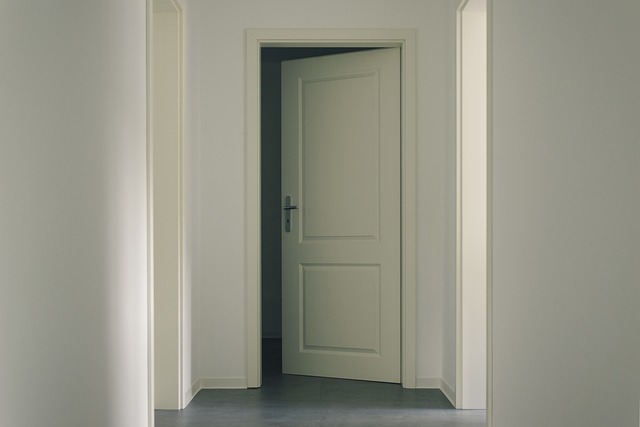Choosing the right door for your home is a crucial decision that goes beyond aesthetics. Doors play a significant role in security, energy efficiency, and the overall curb appeal of your home. Here’s a comprehensive guide to help you make an informed decision when selecting the best door for your home:
Table of Contents
1. Consider the Material:
- Wood: Offers a classic and warm aesthetic. Solid wood doors are sturdy and provide excellent insulation, but they may require more maintenance.
- Steel: Known for its durability and security. Steel doors are resistant to weather and are less prone to warping or cracking. They may, however, require periodic maintenance to prevent rust.
- Fiberglass: Mimics the look of wood but is more durable and requires less maintenance. Fiberglass doors are resistant to dents, scratches, and rot.
2. Security Features:
- Solid Construction: Opt for a door with solid construction, especially for exterior doors. Reinforced cores and multi-point locking systems enhance security.
- Quality Locks: Choose high-quality locksets and deadbolts. Consider smart lock options for added convenience and security.
3. Energy Efficiency:
- Insulation: Look for doors with good insulation properties, especially for exterior doors. This helps in maintaining a comfortable indoor temperature and reduces energy costs.
- Energy Star Certification: Check for Energy Star certification, which indicates that the door meets energy efficiency standards.
4. Style and Aesthetics:
- Architectural Style: Consider the architectural style of your home. The door should complement the overall design, whether it’s traditional, modern, or eclectic.
- Color and Finish: Choose a color and finish that complements your home’s exterior. Consider options that are resistant to fading and weathering.
5. Door Configuration:
- Single vs. Double Doors: Decide whether you want a single door or a double door (French doors). Double doors can add a touch of elegance and provide a wider entry space.
- Swing Direction: Determine the swing direction of the door based on the layout and functionality of the space.
6. Glass Features:
- Glass Inserts: If you want natural light, consider doors with glass inserts. Choose between clear, frosted, or decorative glass based on privacy preferences.
- Low-E Coating: Opt for Low-E glass to enhance energy efficiency by reducing heat transfer.
7. Maintenance Requirements:
- Wood Finishes: If you choose a wooden door, be prepared for periodic maintenance such as staining or painting to protect it from the elements.
- Low-Maintenance Options: Fiberglass and steel doors generally require less maintenance and are more resistant to the effects of weather.
8. Weather Resistance:
- Weather Stripping: Ensure the door has proper weather stripping to prevent drafts and enhance energy efficiency.
- Water Resistance: For exterior doors, choose materials that are resistant to water damage, especially if your region experiences heavy rain or snow.
9. Budget Considerations:
- Initial Cost vs. Long-Term Value: While budget is a consideration, weigh the initial cost against long-term durability and energy efficiency. Investing in a high-quality door can pay off in terms of longevity and reduced energy bills.
10. Installation and Warranties:
- Professional Installation: Proper installation is crucial for the door’s performance. Consider professional installation to ensure a secure and weather-tight fit.
- Warranty: Check the warranty offered by the door manufacturer. A solid warranty reflects the confidence of the manufacturer in the product’s durability.
11. Local Building Codes:
- Compliance: Ensure that the selected door complies with local building codes and regulations.
- Impact Resistance: In regions prone to severe weather, consider doors that meet impact resistance standards.
12. Test the Door:
- Operability: Test the door’s operability, including smooth opening and closing. Check for any squeaks or resistance.
- Seals and Weatherstripping: Inspect seals and weatherstripping to ensure they are in good condition.
13. Customization Options:
- Custom Sizes and Designs: Some manufacturers offer customization options. If your door opening is non-standard, consider a custom-sized door.
- Hardware Options: Explore different hardware options such as handles, knobs, and hinges that match your style preferences.
14. Brand Reputation:
- Research Brands: Look into the reputation of door manufacturers. Read reviews and testimonials to gauge the quality and reliability of their products.
15. Future Resale Value:
- Neutral Design: If you plan to sell your home in the future, choose a door with a neutral design that appeals to a broad range of potential buyers.
Choosing the best door for your home involves careful consideration of various factors to ensure it meets both functional and aesthetic requirements. Take your time, explore different options, and consult with professionals if needed to make an informed decision that enhances the overall appeal and security of your home.

